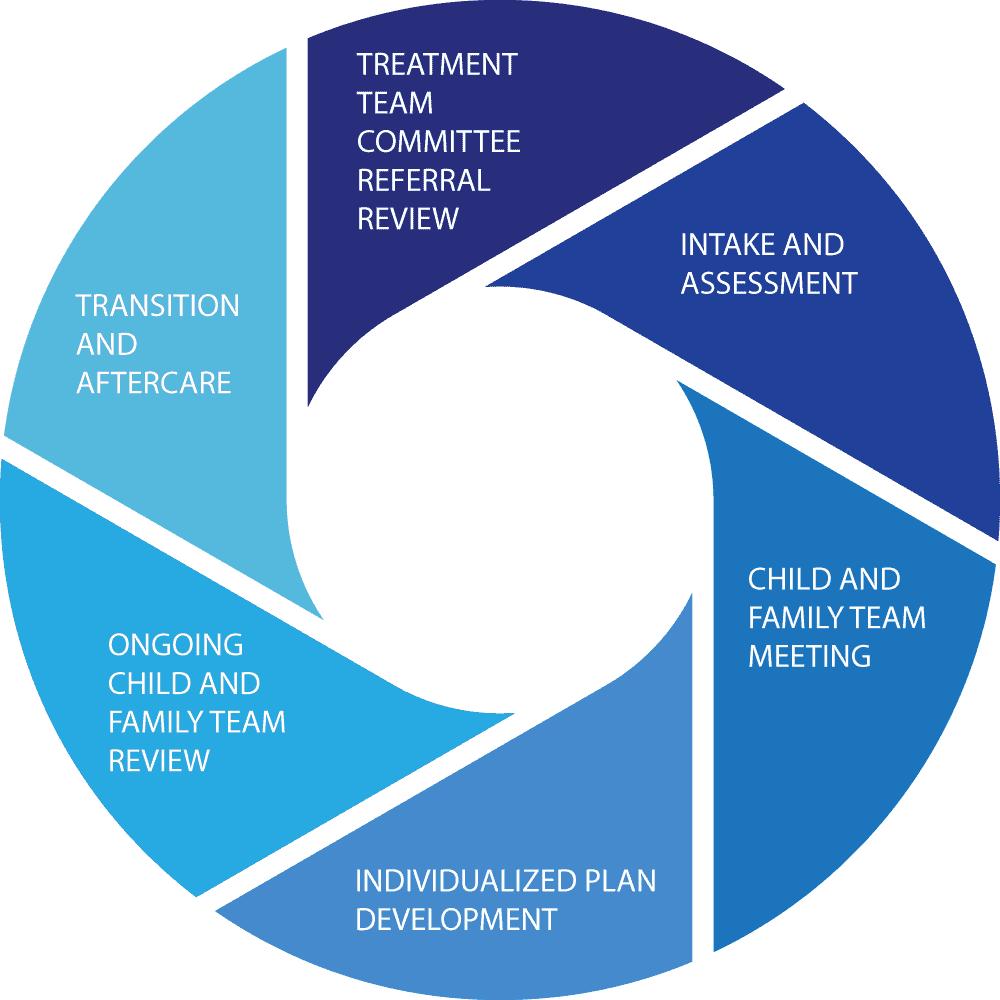Client Services
Clinical Services
Sierra Ridge Treatment Center strives to provide quality specialized mental health services to clients that meet medical necessity. Our trauma responsive services include assessment, safety planning, individual therapy and group therapy. All services are individually prescribed based on medical necessity and the child’s individual needs. The Child and Family Team meets monthly to modify the Needs and Service Plan and Treatment Plan as appropriate.

TREATMENT SERVICES
Treatment services are provided within a strengths-based, cognitive-behavioral and trauma-responsive environment by qualified clinical staff and guided by evidence-based principles.
Treatment Groups are delivered by highly qualified clinical staff and include Seeking Safety. Sierra Ridge’s Clinical Services offer a variety of evidence-based individual and group therapies which are provided as prescribed on a student’s individualized treatment plan, including:
Seeking Safety, Aggression Replacement Training, Independent Living Classes, Pathways and Cognitive Behavioral Interventions for Substance Abuse.
Intensive Care Coordination
Upon admission, all clients are assigned a Transitional Coordinator to coordinate their services during their time at Sierra Ridge Treatment Center. Through collaboration with the Child and Family Team, the Transitional Coordinator develops the child’s individual Needs and Service Plan and Transition Determination Plan. The child will have the opportunity to meet with their Transitional Coordinator regularly to process through challenges that they experience and discuss the services they receive. The Transitional Coordinator works directly with the Child and Family Team to advocate in the best interest of the child.

Transition & Aftercare
Each youth’s Transition Plan is individually prescribed to support him in leading a productive and successful life upon returning to the community. To access services and community supports, Sierra Ridge staff assist with logistics (e.g., transportation, phone calls, and scheduling) while teaching self-sufficiency, self-advocacy and assisting youth and families with:
Education – contacting school district, trade school or college to provide transfer of credits, college preparation, and financial aid application assistance.
Family/relational supports – transitioning to community family therapist, peer support groups and other positive adult supports.
Employment needs – creating resumes, conducting job searches, and conducting mock interviews.
Mental health/substance abuse – registering with community mental health centers, providing documentation and medication follow-up, and outpatient programs.
Recreational activities – locating gyms, local recreation centers, and transferring recreational activities learned at Sierra Ridge into their home communities.
Spiritual/cultural support system – locating churches, clubs and cultural events/activities.
Medical needs – connecting with outpatient medical services for continued health/wellness.
